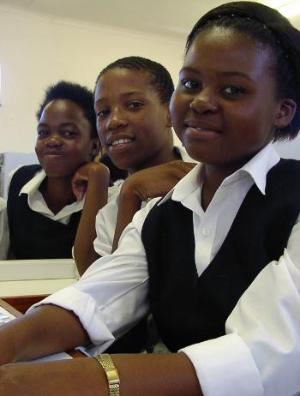It is very promising to see the Malawi government making efforts to have the school curriculum science-based. The intentions are quite encouraging, but the means might be frustrating to both the Malawian young learner and the teacher. Most of the countries that have made some strides in development have embraced development of scientific skills as the main key area in realizing this dream. Efforts have been made by different stakeholders to improve the performance of science subjects so that our country should achieve considerable growth.
From the look of things it seems many donors are willing to assist our education system. This is evident from their efforts to build infrastructure, train teachers, capacity build the already serving teachers and buy teaching and learning materials among so many interventions.
However, not many of our science teachers have been trained in best practices of how to teach science subjects effectively despite the intervention of the SMASSE project which has proved to be of very great help to both the learners and the teachers. JICA has provided the necessary support for these teachers to be trained from within and abroad. A good number of teachers have been trained in Japan, Malaysia and Kenya. These teachers are provided for by JICA and the Malawi Government is only requested to provide the top up allowances for these participants. It is very surprising that more than often the Malawi Government has been reluctant to honour their part
As I am writing this article, some 9 Malawian teachers are among other participants from 10 countries attending a Third Country Training Programme in Kenya on Enhancing the Practice of ASEI-PDSI in Mathematics and Science which is in line with the intentions of the new science based curriculum. These science teachers went to Kenya on 7th September, 2014 and are expected back home on 27th September, 2014, with some scientific skills for sure; ready to share with their colleagues for the betterment of education in the country. The trip was sponsored by JICA and it’s on full board.
Usually, government officers are provided with top up allowances on such kind of official errands. It is sad therefore that these officers went to a foreign country on official duties without the said top up allowances. It was very unfortunate that the officers were told that they will not be given anything from government yet this is one of the most important trainings needed when the new curriculum is rolled out. Our Malawian friends are finding the going tough in Kenya. They cannot even afford a call to their families home let alone a bottle of water. It would have been better for our government to perceive these trainings as a good platform for the development of our country.
Paradoxically, if this training were from other fields than education sector, these officers would have been paid their allowances before leaving Malawi for Kenya.
Examples to this are abound: we have examples from other ministries like Ministry of Health, Ministry of Agriculture, Ministry of Foreign Affairs, and almost in every ministry except for the Ministry of Education where travelling officers of such errands get their dues without any problems. What is wrong with the Ministry of Education officials? Do they not see the importance of such kind of trainings? How do they expect these 9 officers to freely share their experiences when they come back home? It is my sincere hope that these officers will be honored upon their arrival or even before they come otherwise it is time the ministry acts responsibly.
In line with the civil service reforms underway in our country, training of the personnel ought to be considered as one avenue that would help to hone the required skills that government would be looking for to accelerate development in all sectors of our economy. It is therefore unimaginable that whilst the politicians are doing all they can to provide that kind of vision the technocrats on the ground are running short of ideas to support the visions by among other ways not supporting the trainings as outlined above. It is only a country that is serious in development of skills in its citizens that will be able to compete significantly on the global economy
The Ministry of Education Science and Technology (MOEST) is to be drawn to comment as at the mean time its Spokesperson, Rebecca Phwitiko is out of the country in China





No comments! Be the first commenter?